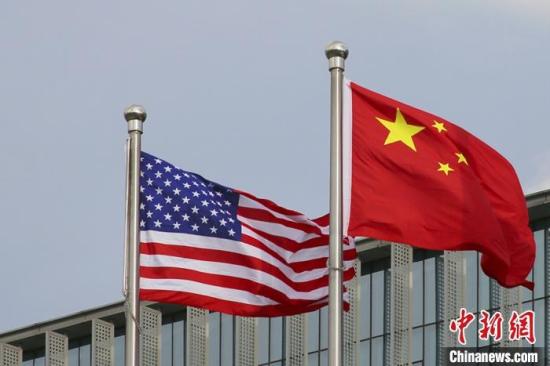MOFCOM slams U.S. 301 probes against China's maritime, logistics, and shipbuilding industries
China's Ministry of Commerce (MOFCOM) on Friday expressed strong dissatisfaction and firm opposition to a fresh wave of sanctions imposed by the Biden administration on multiple Chinese firms and a recent Section 301 investigation report targeting China's maritime, logistics, and shipbuilding industries, vowing to take necessary measures to defend China's legitimate rights and interests.
In response to a question regarding the U.S. Section 301 investigation against China's maritime, logistics, and shipbuilding industries and a series of late-stage trade curbs against China by the Biden administration, a MOFCOM spokesperson emphasized that the Section 301 investigation reflects clear unilateralism and protectionism, saying that the U.S.' previous imposition of 301 tariffs on Chinese goods was ruled by the World Trade Organization (WTO) as a violation of its rules and faced opposition from numerous WTO members.
The latest U.S. 301 investigation is motivated by domestic political considerations and an attempt to suppress China's development, posing a severe threat to the multilateral trading system and international trade norms, according to the ministry.
The U.S. 301 report targeting China's maritime, logistics, and shipbuilding industries is filled with unfounded accusations. The decline of the U.S. shipbuilding industry had no connection to China. The share of the U.S. shipbuilding industry in the global market is barely measurable before the rise of China's shipbuilding sector, said MOFCOM.
China's shipbuilding growth is not based on so-called non-market practices but is underpinned by a robust industrial system, a highly skilled workforce, and an open business environment. China's maritime market has always remained open to global players, with no discriminatory policies against foreign vessels or companies. Chinese industrial policies are primarily guiding rather than mandatory and treat domestic and foreign enterprises equally, the ministry added.
In contrast, the Biden Administration has implemented massive subsidies under the Inflation Reduction Act and the CHIPS and Science Act, many of which are discriminatory. These policies and practices significantly undermine the effectiveness and authority of WTO rules and exemplify true non-market practices, it said.
China urged the U.S. to respect facts and multilateral rules, adhere to the principles of market economy and fair competition, address the legitimate concerns and reasonable demands of businesses from both nations and stop shifting domestic industrial development issues onto China, the MOFCOM said, noting that China will follow the U.S. moves and take necessary measures to defend its legitimate rights and interest.
On Friday, the China Association of the National Shipbuilding Industry (CANSI) has strongly criticized the U.S. administration's Section 301 investigation report targeting China's maritime, logistics, and shipbuilding sectors. CANSI denounced the investigation as irresponsible, claiming the conclusions are based on flawed research and accusing the report of being filled with distortions and falsehoods. The association labeled the findings as baseless attacks and malicious smears against China's shipbuilding industry.
In its statement, CANSI highlighted that the growth of China's shipbuilding sector is driven by adherence to market principles, compliance with international trade rules, and win-win cooperation with global partners. It attributed the industry's success to technological innovation, management reform, quality improvement and the tireless efforts of the Chinese shipbuilding workforce.
The association also urged the Office of the U.S. Trade Representative to adopt a correct perspective on the development of China's shipbuilding industry, rectify its erroneous actions, and avoid causing further harm to the global maritime industry.
CANSI reaffirmed its commitment to openness and cooperation, emphasizing its willingness to work with partners worldwide to address challenges and safeguard the shared interests of the global maritime sector.

